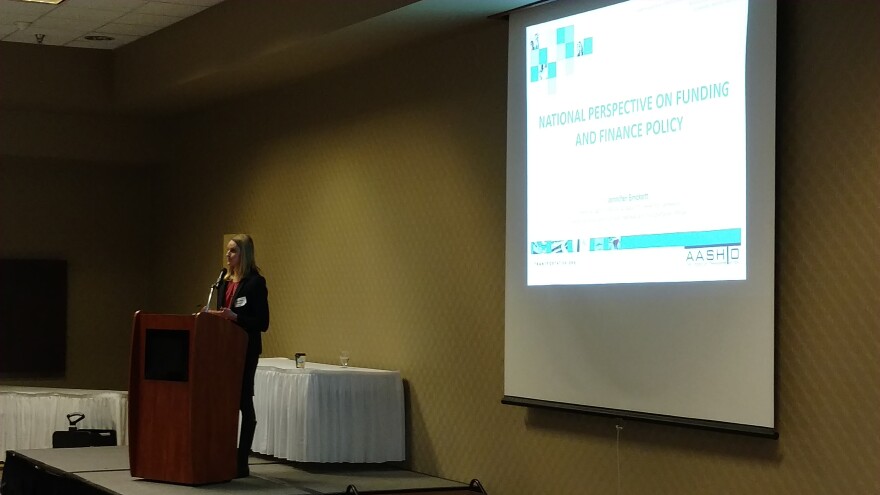North Dakota’s Transportation Director is concerned about what he called a “funding gap” for North Dakota’s highway system.
"As we look at our data, and we look at the condition of our transportation system, and the revenue we have coming in -- in the future, there is a funding gap," said Tom Sorel. "There's a funding gap even in the system as it is today."
DOT brought together a group of Legislators, transportation companies and others to start looking at the issue.
Sorel said a number of options are now on the table.
"The gas tax is one option," Sorel said. "But others are on the table as well, because there's no silver bullet."
North Dakota hasn't raised its gas tax since 2005.
The director of the American Association of State Highway Transportation Officials said states throughout the country are looking for new ways to help fund roads and bridges.
"Since 2012, 31 states have passed revenue initiatives," said Jennifer Brickett. "May have raised their gas taxes."
Brickett said some states have raised fees on truck registrations, and other things.
"There are many different ways states can raise revenue," Brickett said. "We have identified 54 different revenue options states are using."
Brickett said state officials need to pay attention to the federal funding for transportation.
"It's becoming more uncertain and unpredictable," Brickett said.
Sorel said that brings an urgency to these discussions – because the federal Highway Trust Fund will reach a “cliff” in 2020.
"The income coming in at the federal level isn't keeping up with the outlays of the federal program," Sorel said. "Pretty soon, they're not going to have enough money to pay their bills."
Those bills come from state transportation departments. The current funding formula for highways is 80 percent federal, 20 percent state and local. Transportation officials say the proposal for $1.5 billion in infrastructure, with $200 billion of that federally funded, flips the formula to a 20-80 split, with the states picking up the lion’s share.
"Coming up with that much match will be difficult for most rural states," Sorel said.
Sorel said the discussions will continue. He hopes this will lead to a vision of future transportation, and something to take to the 2019 Legislature.


